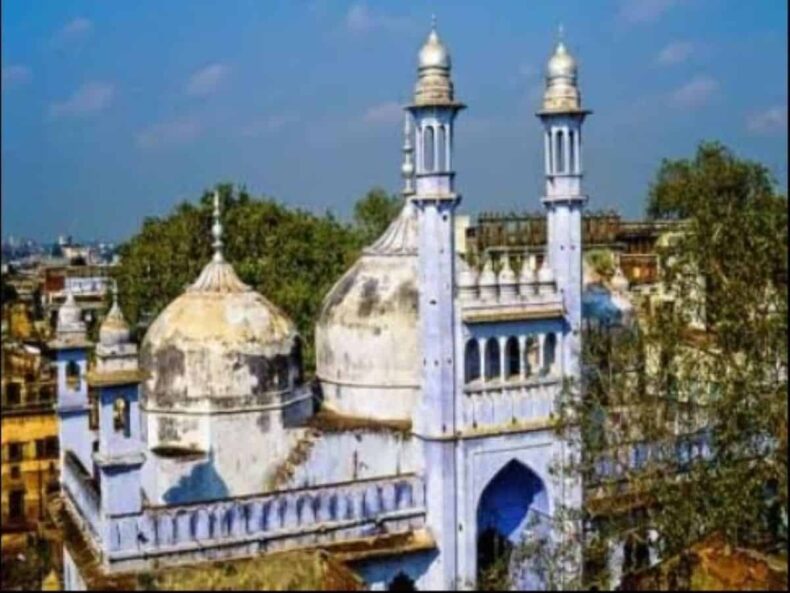After the Supreme Court transferred the highly controversial Gyanvapi case to the Varanasi district court on May 20, a new decision regarding the matter surfaced. The court has allowed the hearing of the petitions regarding the right to worship inside the Gyanvapi complex.
The state unit of the BJP in Uttar Pradesh has displayed unparalleled jubilation at the decision. Uttar Pradesh Deputy Chief Minister Keshav Prasad Maurya hinted that the next on the list could be Mathura and Kashi. The BJP leadership has apparently decided to let VHP, the more radical wing of RSS do most of the talking.

Jubilation in the BJP Camp
Minutes after the decision, Maurya tweeted in Hindi, “… I welcome the order of the honorable court in the matter of Baba Vishwanath Ji Maa Shringar Gauri Mandir. Everyone should respect the decision.” Political observers have interpreted this verdict as a larger message of “karat leti Mathura Kashi” (translation: Mathura Kashi are stirring).

Another UP Deputy Chief Minister, Brajesh Pathak, expressed a more sober opinion, “The UP government welcomes and respects the court order. We are alert. We will maintain the rule of law in UP; no one will be allowed to break the law.”
Asked why the BJP is enthused with the verdict, a senior BJP leader said, “Hearing on the matter is expected to continue for a few years—ranging from the district court to the High Court to eventually the Supreme Court. Many elections will be contested in that period. When facts and evidence on Gyanvapi are discussed, it will create momentum.”
This is in consonance with what former BJP leader LK Advani used to say, “Economics will never be a (long-term) winning formula. Polarisation has always helped the BJP… without it, the BJP won’t be able to retain its dominance.”
The Opposition Takes a Silent Stand
In addition, all the major opposition parties, including Congress, chose to maintain a calculated, and perhaps politically convenient, silence. When asked about the court verdict, a Congress leader replied, “They have done nothing, the matter is sub judice. We will react when something comes up… it’s just a notice about an ongoing process. We are not reacting because the legal process is on.”
Places of Worship Act 1991 in Contention
In May, however, Congress referred to the Places of Worship Act passed by the Narsimha Rao government in 1991. The act seeks to maintain the religious character of any given place of worship as it was in 1947. This act had only one exception, that is, the Ramjanmabhoomi Temple, which was already in court.
While the Congress chose not to speak out this time, senior Congress leader P.Chidambaram said during the Chintan Shivir in Udaipur that, “… We believe that all places of worship should stay as they are and as they were in 1947. Any attempt to change any place of worship can lead to conflict and it was to avoid this sort of conflict that the Narsimha Rao government passed this act in 1991.”
The BJP, on the other hand, will look to lobby for a relook at the said act through the Gyanvapi verdict.
BJP’s Balancing Act
However, RSS chief Mohan Bhargava questioned the need to “find Shivling in every mosque.” Incidentally, this was the first official remark of the RSS on the matter. He also clarified that the RSS was not in favor of starting any movement on these issues.
Senior BJP leaders also believe that, as a party under constant global scrutiny, they cannot afford to be seen backing such issues. Besides, the government swears by the motto of “Sabka Saath, Sabka Vikas, Sabka Vishwas.”
For now, the central leadership of the ruling party is focused on maintaining the “ideology of development followed by Prime Minister Modi” and leaving sensitive issues like the Gyanvapi temple dispute to its more outspoken and radical mouthpiece, the VHP – an organization that had led the Ramjanmabhoomi Temple movement successfully.
Read More: EU Court Demands a Reason for Banning Religious Signs












